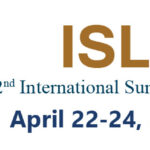
According to the American Heart Association, heart failure
affects 5.7 million people and is on the rise.
Heart failure means the heart does not pump as well as it should, making it difficult for people to perform everyday tasks that we take for granted. Common symptoms of heart failure include feeling fatigue, shortness of breath (especially when lying down) and coughing or wheezing. Other symptoms are swelling in the legs and ankles, as well as weight gain due to the body withholding fluid. These symptoms usually develop over time as the heart becomes weaker and less able to effectively pump blood.
There are different classifications of heart failure based on the stage of the disease. In the initial stages of the disease, people can usually carry on with life as usual without much difficulty. But, in the later stages, doing daily activities can cause some of the symptoms mentioned above.
This is when Parrish Medical Center’s (PMC) cardiac rehabilitation program can help. Their cardiac rehabilitation program is designed to help people with several types of heart problems, including heart failure.
Parrish Medical Center’s cardiac rehabilitation team is made up of nurses, respiratory therapists and a fitness specialist. The program includes exercise training and self-care counseling designed to help people with heart failure prevent worsening their condition and to achieve their best health. Participants learn about the anatomy and physiology of the heart; nutrition and meal planning; stress management; coping with depression; and learn about the different medications used to treat heart failure.
 Exercise is important for overall good health. PMC’s cardiac rehabilitation program provides a safe exercise environment. Heart rate and blood pressure are monitored during exercise and participants have the guidance of certified exercise specialists. The initial exercise session involves light activity for a short period of time. As an individual’s condition improves, exercise time is increased. When ready, individuals graduate from the program and are given an exercise routine to follow on their own.
Exercise is important for overall good health. PMC’s cardiac rehabilitation program provides a safe exercise environment. Heart rate and blood pressure are monitored during exercise and participants have the guidance of certified exercise specialists. The initial exercise session involves light activity for a short period of time. As an individual’s condition improves, exercise time is increased. When ready, individuals graduate from the program and are given an exercise routine to follow on their own.
To further prevent heart damage, individuals should stop smoking, quit chewing tobacco, abstain from alcohol; control their blood pressure, and cholesterol levels; and maintain a healthy weight. It’s important to check with your doctor first before exercising on your own.
Cardiac rehabilitation exercise training and self-care counseling are especially beneficial for people with heart failure. Not only do these therapies increase a person’s ability to exercise, minimize symptoms like fatigue, and improve quality of life, cardiac rehabilitation helps decrease the risk for future cardiac events and/or worsening of the condition.
Cardiac rehabilitation exercise classes are held on Tuesday and Thursday mornings at Parrish Health & Fitness Center. Call (321) 268-6726 for more information.
AWARD WINNING HEART CARE
Parrish is proud to provide the area’s most recognized cardiovascular program for quality and service. Parrish’s cardiovascular programs have received:
■ Advanced certification as a Primary Stroke Center by The Joint Commission
■ Top Performer status on Key Quality Measures by The Joint Commission, including for Heart Attack and Heart Failure
■ Straight “A” safety ratings (since 2012) from the Leapfrog Group; Brevard’s only hospital to do so.
Door-to-treatment time is critical to exceptional cardiac outcomes. While national standards encourage treatment to be performed within 90 minutes of hospital arrival, Parrish Medical Center’s door-to-treatment times averaged only 54 minutes in 2014, and have been further reduced to a 47-minutes average for 2015.
Parrish specializes in the newest procedures to treat existing and potential cardiovascular problems. Your care team includes board-certified cardiologists, nurses with advanced certifications in critical care and a host of other highly credentialed cardiology experts.
Learn more about Parrish’s cardiovascular programs at ParrishVigor.com/Heart-Care











